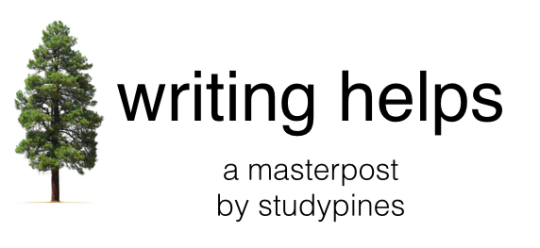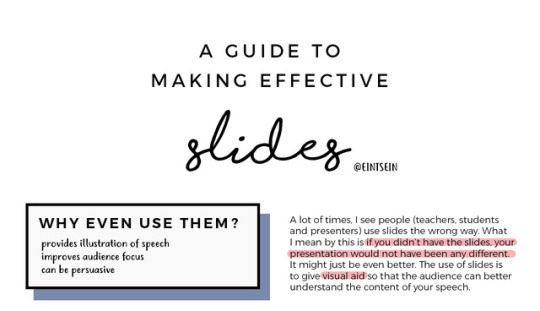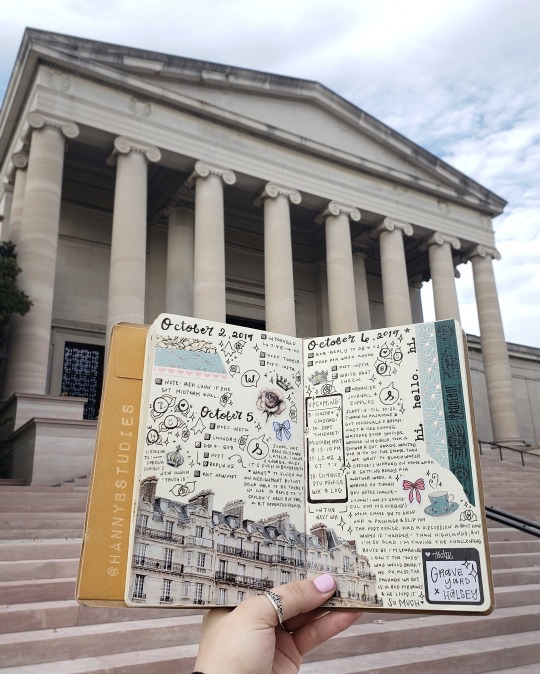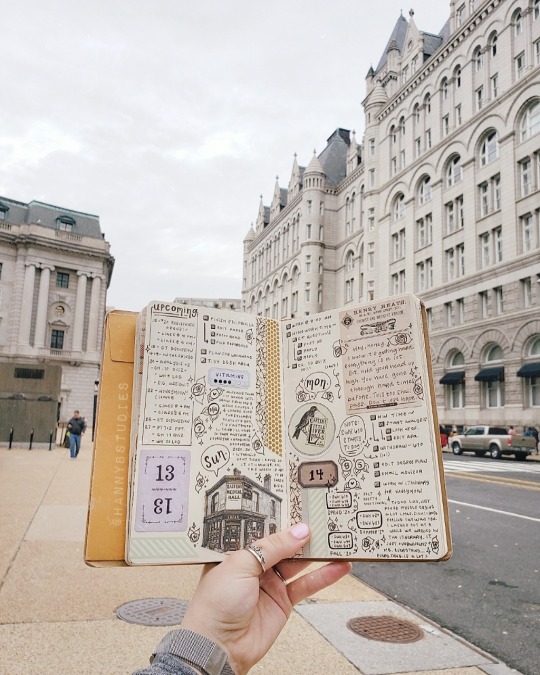Text
you ever look forward to commuting just bc you’re so excited to experience the fleeting joy of listening to you favourite music while wistfully gazing out of the window and daydreaming about alternative lives you could have lived
45K notes
·
View notes
Text
damnnn that bare wrist! 🥴😍 (original post by @kehrite)

6K notes
·
View notes
Text
IG-11: *takes off mando’s helmet and reveals the face of the mandalorian*
me, already knowing what pedro pascal looks like:

6K notes
·
View notes
Photo

hey babes! writing is one of my biggest passions. i love poetry, essays, stories, lab reports, journalism, and any other writing style you can think of probably so i thought i’d just put together some resources to help myself and most importantly, you guys out.
essays
for ap lang & lit
guide to an academic paper
write a kick ass essay in an hour
writing an actual essay in an actual nutshell
write a kick ass essay w half the stress
structuring an essay
tips on writing a thesis statement
free bibliography and citation generator (2)
masterpost on writing essays
lab reports
phrase bank for discussing findings
very basic thing on science reports
writing lab reports and scientific papers (a lil more in depth than the link above)
creative writing
10 things writers don’t seem to know about the woods
when you get stuck in the middle of a scene
on including a theme/symbolism/underlying meaning
character names
unblocking writers block
masterpost of writing resources
journalism
how to write an article
writing a lead
how to write a news story
how to write an editorial (MY FAV THING THIS IS WHAT I LOVE)((i can totally make my own post all about editorials i love them))
the news manual (u know what u can find everything on here)
ok so there are so many types of articles and ways to organize them so if you really want to know about those, just ask me, yeah?
words
tone vocab list
substitutes for ‘therefore’
substitutes for ‘but’
character personality traits
describe someone’s voice
annoying word things that a lot of people do
synonyms for words that students use a lot
100 sat words
emotions
more sites
type in the meaning and get the word
find the word that’s on the tip of your tongue
find rhymes!!
find synonyms
just this blog in general
60 awesome search engines for serious writers
writing advice
50 best sites for writers
find the right words
hemmingway editor (app that makes your writing bold and clear)
hope this is helpful!!
- annie :-)
18K notes
·
View notes
Photo


this is probably one of my fave spreads, it’s from back when the bts comeback happened :’) god i’m still completely obsessed with their album.
ig: booksnjournals
7K notes
·
View notes
Text
Back to School: How to Get an A*/8 or 9 in an English Lit Essay!

Happy September, everyone!
As we all get our gears in motion to start a new year, I thought I would share my top tips for scoring the highest marks in English Literature essays.
(P.S. Lots of these tips are applicable to other subjects too)
1. Don’t write about the character as if they are real
Unfortunately, this is a common error in English Lit essays. It is absolutely imperative to remember that a character is not a person, but is a construct of the writer in order to present an idea or theme. No matter the question, you should be linking your answer back to the writer’s ideas and theme of the text, even if it doesn’t seem obvious what the theme is on the first inspection of the question. Using the author’s name frequently in your essay will demonstrate that you recognise the character is not a real person - ‘Shakespeare portrays Macbeth as a tragic hero, as defined by Aristotle as…’
2. Don’t analyse the plot
Avoid analysing the plot or when things happen in the text. Don’t write ‘When X happens it makes us think Y’. Instead:
Analyse the writer’s use of language, structure and form to create meaning
Do a close language analysis of specific words/phrases, including a sound analysis (plosives, assonance, etc.)
Do a structural analysis of what happens when and why that’s important (Freytag’s pyramid)
Do an analysis of form (stage directions, dramatic monologue, etc.)
3. Keep your answer relevant throughout
You need to be explicitly answering the question - not going off on a tangent nor trying to change the question to suit an answer that you want to write. One way of avoiding this is by starting each paragraph with a topic sentence, summarising what that paragraph is going to be about and how it answers the question. Another method is simply by rewording the question into your answer at the start and end of every paragraph. At least. For greater impact, include synonyms of the word, which can also help with the readability of your answer.
4. Avoid PEE/PEEL/etc. where you can
Thousands of students are taught the same, basic Point-Evidence-Explain (or variant) analytical paragraph structure. If you want to stand out, show academic strength, and achieve the highest marks then you must break free from the chains of PEE! (This also applies for your introduction format. ‘In this essay, I will argue…’ gets pretty dull after reading it 100 times)
For my students, I will be teaching them to write What-How-Why paragraphs:
WHAT has the writer done?
HOW have they done it?
WHY have they done it/is it effective?
This way, your focus is always on why the writer has chosen to use that specific language/structure/form, but it allows you to be creative in crafting your response. Being able to discuss the ‘why’ of literature is the key to unlocking the highest grades. Reading through examiners’ reports this summer has made one thing clear - it is not enough to merely spot linguistic devices or structural features. You must explain why the writer has chosen them and why that is an effective choice (or not).
5. Avoid sweeping statements about context
The main advice here is to only include comments about the context of the text if it adds to the analytical point that you are making. They should not be a bolt-on sentence, but they should enhance your answer.
Further, sweeping claims like ‘All Jacobean women were oppressed by society’ is far too vague. On the other hand, a comment like ‘Lady Macbeth is a disturbing example of womanhood because she denies her gender at a time where the role of a woman was clear-cut, even patriarchal, in Jacobean society’ suggests that you have a greater understanding of how context can influence the writer’s choices.
6. A plan is your best friend
Always, always make time to plan your answer. A method I recommend is, first, circling the key words in the question (character/theme, what you are asked to do, where in the text you are asked to look, etc.). Secondly, write all of your ideas down onto the page, highlighting parts from the extract if you have that in front of you. Finally, select a judicious number of points that you are going to talk about (quality not quantity here) and number the order in which you are going to make them.
If you are writing a comparative essay, each paragraph must start and end with a comparative point about whatever it is you are comparing (characters/themes/etc.) I suggest the following format:
‘X is presented in both text A and text B. However, in A the author uses device 1 and 2 to demonstrate X. On the other hand, in B, the author demonstrates X via use of device 2 and 3.’ Then write one paragraph for each text. Repeat this again for another similarity. And again for a third - if you think that is appropriate.
Photo credit @eintsein 🌻
12K notes
·
View notes
Text
study less study smart
I decided to share my notes taken from this amazing 1 hour Youtube lecture by Marty Lobdell. i really liked him and his tips, i think they are super effective and cover a lot of situations! i highly recommend it!!!!! wow
but here are the tips and examples Marty mentions, so if you don’t have the time to go through the full hour, you can just scroll down. hope this helps somebody!
Break your study time in chunks with breaks
most students lose focus at 25 minutes
it’s a mistake to keep going once you do, since you won’t actually learn anything and you’ll hate every minute of it
so when you start losing focus take a 5 minute break
do something nice like talking to someone or listening to music
it’s something you practice so with time you’ll be able to work for more time without losing focus
in the end of the study session have a big reward you look forward to
Create a study area
environment highly affects the way you act. Bedrooms are for sleeping, kitchens for eating: you’ll feel sleepy in your bedroom and hungry in the kitchen. So if you have a study area, it’ll be easier to start studying and staying focused.
study in a specific room like an office or school library if you can
if you have to study in your bedroom use a specific object you only use for studying: a lamp/desk. Make it a no-distraction, away from your bed, blank walls area.
The more active the learning, the better
80% active learning 20% passive
ask yourself: is it a concept or a fact?
learning a concept: understand/grasp/know it
put it into your own words
really think about the meaning of it
relate it with something you already know
teach somebody else. Recapitulate what you’ve learned. Talk out loud even if you don’t have anyone to teach - talk alone. Or at anyone that listens.
learning a fact: memorize it
use mnemonics
Acronyms (e.g. colours of the rainbow RoyGBiv – red orange yellow green blue indigo violet)
Coined sayings - anything popular or sayings you’ve heard since you were a child.
Interacting images – work even better if they’re weird. Creative associations make you never forget specific details. (e.g. 1 gram of fat has 9 calories: picture a fat cat – each cat has 9 lives)
any time 2 things are highly similar but not the same you will get maximal interference!! USE mnemonics!! (e.g. afferent vs efferent neurons: SAME - Sensory Afferent Motor Efferent)
Be a part of study groups
others can help you in ways you never thought before
Recognizing VS remembering
never confuse the two
while reviewing a chapter you may recognize concepts but not actually know them
and when you get to the test you won’t be able to remember any of it
so quiz yourself without looking at it
or stop in a page of your notes/textbook and ask yourself what is the concept immediately after and before it
Get your REM Sleep
get ~8 hours so you don’t undo your studying
this is how your brain stores permanent memories
without it you’re ability to remember seriously decreases
most people don’t even begin to take the advice but it’s simple: sleep better. Do better.
There’s 162 hours in a week. There is time.
reflect on what you are doing with your time and what activities you have to prioritize to succed as a student
Taking notes is vital.
right after the class take 5 minutes to expand everything you’ve jotted down, give it depth.
NOT hours later. You won’t remember half the things you wrote down.
Ask your questions to class mates and teachers.
teachers want you to succeed and it’s more than ok to ask your question in the teacher’s office or in the next class
How to use a textbook: SQ3R technique
Survey Question Read Recite Review
Survey: skim through the entire chapter in a couple of minutes.
Raise questions: e.g. what is osmosis? What is this graphic about? What is a prototype?
it causes you to look for answers and you’ll find the information better once you actually study it after. If you intend to find something you learn it better.
Start studying for tests early.
don’t undo yourself. You should only be reviewing the days before the test. don’t leave it till the last minute!
(don’t just scroll through this!!!! really think about these methods and how you can actually implement them so you can benefit from them!!! these actually work but only if you put them into practice boo good luck!)
43K notes
·
View notes
Photo

hi honeys !! i’m back with another self care masterpost because we all know self care is probably my favorite thing in the world. anyways, these are just a few tips (that i actually came up with myself in my own bujo to help me stay productive and motivated) to help you get back into the swing of things as school starts up again :)
take a nap after school rather than just wasting time “relaxing” (aka scrolling through twitter for hours @ me)
start homework at school (if possible)
be okay with giving yourself breaks and rest periods, but make sure what you do in those times is actually serving you
work in a coffee shop to get stuff done, but budget yourself. this is helpful but also an easy way to drop a ton of cash in a short amount of time
alternative to above: work in a library or (if you have a big campus or live near a university) go to their main “center” and just chill out there, there are restaurants but also just tables for anyone to use.
be realistic with your time and actually budget it. your time is valuable.
start things early
make small, personal deadlines
reward yourself
work outside
experiment with your studying/writing/working methods - it’s okay to change things up
let things flow
know that you deserve everything you’re working towards
hope this is helpful,
xoxo annie
5K notes
·
View notes
Text
2018 Student Guide
With the start of 2018 well underway, I wanted to make a masterpost full of links on how to adjust your perspective with studying. Perhaps you want to become a better student overall, improve your focus or get into your dream college, there is always something we want to do better! Hopefully these tips will make 2018 your best academic year yet!
Organisation
2018 student planner
planner brand recommendations
planner vs bullet journal: pros and cons
how to set up a bullet journal
setting up a digital bullet journal
bullet journal spread ideas
bullet journal decoration hacks
bullet journal brand recommendations
whats in my bag
my favourite stationery
back to school basic supplies
how to improve your handwriting
handwriting font suggestions
balancing study and work
desk/workspace essentials
student finance tips
2018 monthly planner printables
Productivity
productivity and time management applications
how to remove distractions
types of procrastination and how to deal with them
google chrome new tab options for improved productivity
10 small ways to improve your productivity
applications to block websites
no distraction writing applications
100 days of productivity challenge
how to focus in class
how to stick to a schedule
how to stay alert
how to build self-discipline
how to organise for exams
my after school routine
how to reduce perfectionist ideas
Motivation
what to do when you’ve tried everything
how to gain back motivation
motivational monday printables
how to stop avoiding studying
what to do when you feel exhausted before studying
how I stay motivated
tips on maintaining motivation
how to start a studyblr
how to utilise your studyblr for motivation
how to set up a studygram
dealing with competitive people
how to bounce back from ‘failure’
how to learn from a lower than expected grade
how to structure a weekly review
how to deal with a difficult class
things to do during holidays/study vacations
Studying
applications for students
how to take effective class or lecture notes
how to take notes from a textbook
how to prepare for exams
my note-taking method
my notebook system
how to write faster
how to study more effectively
how to summarise information
how I organise my binders
good habits to implement
how to study (my method)
how to revise from notes
how to organise a colour code
how to memorise information effectively
how to memorise quotes
how to use flashcards
how I reduce waffle and narration in essays
tips for essay writing
how to find out where you’re going wrong
how I prepare to study
different ways to study
how to study during the semester
how to annotate a book/novel/etc
how to get ahead in school
how to break up a large textbook
studying as a visual learner
how to practice and present a speech
mindmapping apps and extensions
how to deal with online classes
how to study a language
how to study maths
how to improve group assessments/projects
Self Care
how to improve your sleep schedule
how to wake up earlier
how to study when sick
over-coming self doubt
dealing with stress
how to balance studying and anxiety
how to balance studying and depression
apps that help with depression
ways to reward your productivity
my favourite tv shows
my favourite podcasts
ways to use empty notebooks
how to be more sociable
tips for getting a job
advice for the first day
things (personal, academic, etc) to do every week
Printables
2018 monthly planner printables
2018 student printables (includes 2018 overview + calendar, daily + weekly + monthly planner, 30 habit tracker, class overview and timed worklog)
weekly study schedule
weekly planner
weekend planner
daily planner
assessment planner
subject to do list planner
study session planner
exam revision printable pack (includes revision checklist, formulas + definitions sheet, essay + project planner, weekly schedule)
note-taking printables (includes dotted, grid, lined, cornell method)
organic chemistry printable
literary techniques and devices sheet
100 days of productivity tracker printable
ultimate student organiser pack
study and revision pack
2018 student planner
2018 weekly planner
pomodoro tracker
grade and assessment planner pack
essay guide and planner pack
productivity planner
student reading journal printable
student finance planner
goal and habit planner
customisable weekly study planner
Other posts | Printables | Instagram | Youtube | Pinterest | Etsy Shop
45K notes
·
View notes
Text
How to study hundreds of pages in the shortest time possible
First of all a disclaimer: No, you can not study them in one or two days. But depending on the topic and how fast you can read, you can do it in one or two weeks!
Factors on which your needed time depends on:
How complex the topic is
How long you need to read a page
How fast you can write
How easy it is for you to understand the text
Basic explainations before I go into detail:
There are two ways of studying: global and and analytical studying
Analytical studying means you really go into detail, try to understand every single word and try to get as much information in the topic as possible. You are studying the topic very precisesly and need the small details to understand it. This is great to understand the topic profoundly.
Global studying means you barely go into detail, but rather try to get an overview over the topic, its most important aspects, and the basic connections. This is great to realize what the most important connections and facts of this topic are, and in what relation the facts stand to each other.
Studying in four steps:
1. The first thing you need to do is read through the whole text and make an excerpt. This step will take you the longest, some days or even some weeks. Basically the best way to do this is to follow these steps:
Look through what you have to study. Hopefully it has chapters, if not, try to split it up into chapters of about twenty pages. This amount works at least for me best. If you have a short concentration span, rather make more chapters with less pages. If you have a long concentration span, make less chapters with more pages per chapter.
Set a realistic goal how many chapters you can read and excerpt in a day. Try to stick to this goal. If the text is easy to read and the font a normal size, one needs about one to two minutes to read a page. If it is difficult to understand or a small font, you may need three to five miutes, so keep this in mind when setting your daily goals.
This goal can vary from day to day. If you know that one day you have a long and exhausting lecture, set the goal lower than for a day were you won´t have any distractions.
Make sure you make this plan early enough. The later you do it, the higher is the chance you have not enough days to get through the text!
Now read a chapter and try to understand as much as possible of it. Focus on it as best as possible, because this is one of the most important steps. If you have problems staying focused, here is my masterpost on how to stay focused.
If your concentration is lost after reading this chapter, take a short break. Then, and it is really really important that you only do it afterwards you read the whole chapter, do an excerpt of this chapter. If you do not know what an excerpt is or how to make on, click here.
By doing the excerpt at the end of the chapter, you revise it for the first time already.
Do this for every chapter you need to study. If you have time left, you can revise the excerpts you already made, but your focus should be on getting through the whole text once.
2. Read thoroughly through your whole excerpt. While doing this, try to recall as many details of the original text that you didn´t write down. Not only read the excerpt, but focus on the relations and connections, realize the meaning and consequences of what you are reading, understand their impact on the subject matter and the topic. Don´t learn it by heart, instead understand it and try to comprehend it with a logic that allows you to recall the realtions without studying them intensively. Do this at least once, if you have the time better do it twice. The harder the topic is for you, the more often you should do this step. This step should take you about one or two days.
3. Skim over your excerpt. Set your focus on the keywords you wrote down in colour and try to recall the most important keywords associated with them. If you have enough time, repeat this once or twice, but you do not have to if you feel you are already very good.This step should take you some hours or a minimum of one hour.
4. Skim over the headings and subheadings of your excerpt. While doing this, try to recall the words you focused on in step three. Only the most important keywords, realtions and connections should cross your thought in this step. This step should take you less than an hour.
After step four, you will be prepared for your exam! Just try to calm down, and most importantly, do not try to recall every little detail now. It will only stress you and give you the feeling that you cannot recall them, which is more often than not totally false. Everytime I used this strategy, I could recall most of the details when writing the test! Also do not revise right in front of the test. You will only confuse yourself and start to panic.
The concept behind this method:
Remeber I tought you the basics of global and analytical studying in the beginning? Well, these are exyctly the background for this method.
Step 1 = analytical
Step 2 = semi - analytical
Step 3 = semi - global
Step 4 = global
Pretty easy once you see it this way, right?
Tip for revising
It helps a lot of people to walk around while doing step 3 or 4!
Good luck everyone and hope this helps!
3K notes
·
View notes
Photo









A GUIDE TO MAKING EFFECTIVE SLIDES aka how to create presentation slides that actually improve your presentation
By Eintsein
(apologies for the variation in image quality. idk what went wrong with tumblr)
38K notes
·
View notes
Text
soon you will be living in a great city, with friends that support you and understand you, learning and experiencing new things every day. you’re conversational in multiple languages and pursuing a field you love. maybe things are not okay now, but they will be. there are so many wonderful things to come.
10K notes
·
View notes










